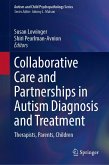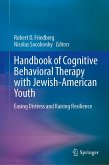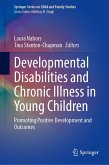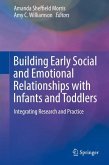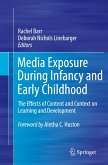The diagnosis of Avoidant Restrictive Food Intake Disorder (ARFID) came out in the DSM in 2013, although many professionals would indicate that patients have presented with these symptoms for years. However, with the ARFID diagnosis, more doctors are recognizing feeding difficulties with the ARFID presentation as significant and are more actively providing treatment. Within inpatient and outpatient Adolescent Medicine Departments, psychiatry, psychology, occupational therapy and in nutrition, there has been a massive increase in ARFID referrals.
This text utilizes a multidisciplinary approach to ARFID and gives practical treatment advice for addressing the topic. It aims to help readers learn about the ARFID subtypes and how these impact treatment best practices while also teaching them how to build a multidisciplinary team. There are many effective low-cost ARFID treatments that are not well known but highly valuable and could benefit practitioners and patients.
The text is divided into two main sections. The first chapters focus on the disciplines that will most likely see patients with ARFID such as psychology, psychiatry, occupational therapy and nutrition, among others. The following section has chapters dealing with specific types of disordered eating behaviors such as sensory eaters, fearful eaters, and low interest eaters. Clinical cases relevant to inpatient and outpatient treatment are also highlighted.
Written by experts in the field, Effective Treatment for Adolescents with Avoidant Restrictive Food Intake Disorder is a valuable resource to help improve the clinical skill set of healthcare clinicians dealing with diagnosis, particularly, physicians, therapists or psychologists, psychiatric providers, occupational therapists/speech pathologists, and dietitians.
This text utilizes a multidisciplinary approach to ARFID and gives practical treatment advice for addressing the topic. It aims to help readers learn about the ARFID subtypes and how these impact treatment best practices while also teaching them how to build a multidisciplinary team. There are many effective low-cost ARFID treatments that are not well known but highly valuable and could benefit practitioners and patients.
The text is divided into two main sections. The first chapters focus on the disciplines that will most likely see patients with ARFID such as psychology, psychiatry, occupational therapy and nutrition, among others. The following section has chapters dealing with specific types of disordered eating behaviors such as sensory eaters, fearful eaters, and low interest eaters. Clinical cases relevant to inpatient and outpatient treatment are also highlighted.
Written by experts in the field, Effective Treatment for Adolescents with Avoidant Restrictive Food Intake Disorder is a valuable resource to help improve the clinical skill set of healthcare clinicians dealing with diagnosis, particularly, physicians, therapists or psychologists, psychiatric providers, occupational therapists/speech pathologists, and dietitians.


